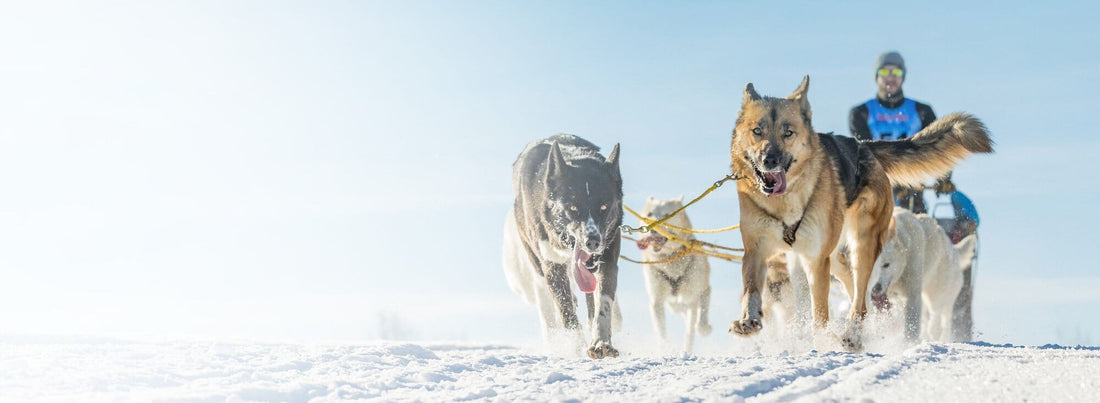The Four-Pawed Athletes of the North
The history of sled dogs, shrouded in the mists of time, likely originates from northern Siberia, where indigenous peoples have long mastered the art of winter travel with these canine companions. These dogs are not just pets, but super athletes known for their remarkable endurance, determination, eagerness to run, and resistance to harsh cold.
Today, sled dogging has evolved, welcoming various medium-sized breeds and even mixed-breed teams, reminiscent of those seen during the Klondike Gold Rush. Interestingly, the Fédération Cynologique Internationale (FCI) recognises only four specific sled dog breeds, each with its own fascinating history and characteristics..
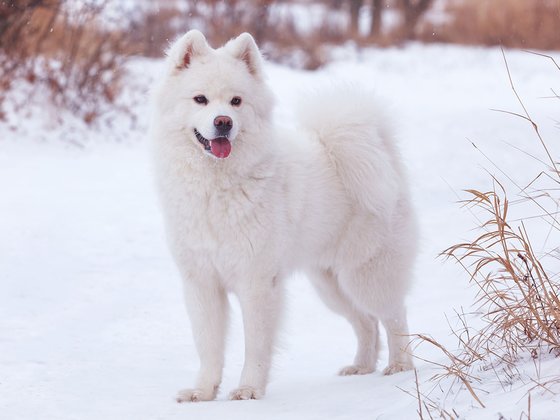
1. The Samoyed: A Fluffy Companion with a Sunny Disposition
Originally from Siberia and named after the Samoyed people, this breed is more than just a sled dog. With its plush, white fur and characteristic "smile," the Samoyed was a multi-purpose helper, from guarding reindeer herds to warming up tents. Despite being less physically robust than other sled dogs, the Samoyed boasts impressive endurance and adaptability.
2. The Alaskan Malamute: The North's Locomotive
The Alaskan Malamute has been a loyal partner to the Arctic peoples for over 2,000 years. Known for its intelligence and strong work ethic, this breed narrowly escaped extinction due to extensive cross-breeding in the early 20th century. Fortunately, dedicated breeding efforts have preserved its legacy, leading to its recognition by the FCI in 1963.
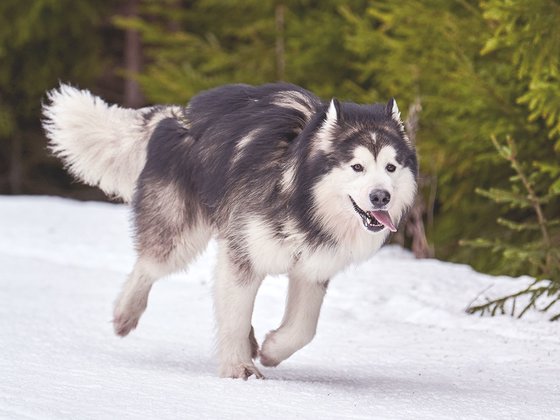
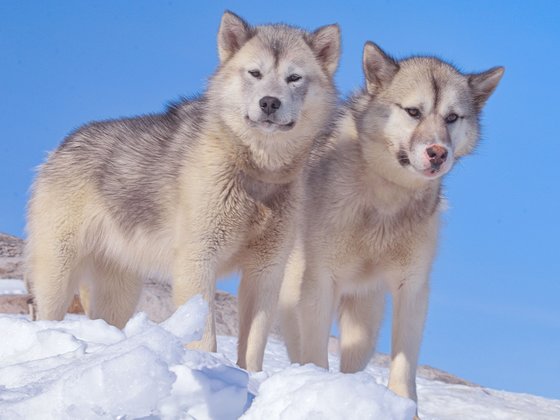
3. The Greenland Dog: A Versatile Arctic Worker
With a history intertwined with the Inuit, the Greenland Dog's skills in hunting and sled-pulling are legendary. Bred for robustness and work capability, this breed has been an indispensable companion in the harsh Arctic environment and was even utilised by early polar explorers.
4. The Siberian Husky: The Quintessential Sled Dog
The Siberian Husky's transition from a crucial farm animal to a beloved family member highlights its versatility and affectionate nature. Renowned for its strength, sense of direction, and love for running, the Husky remains a top choice for mushers worldwide.
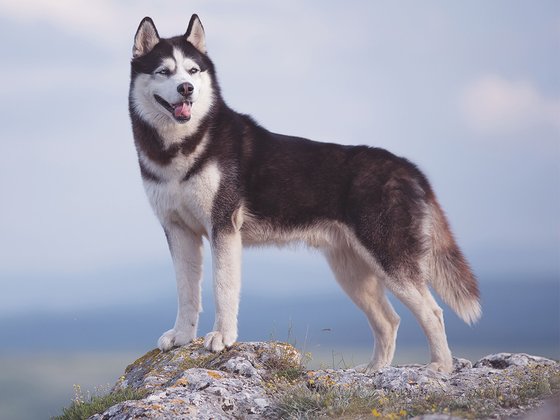
Sled Dogs in the Modern Era
While traditional breeds continue to be celebrated, today's sled dog races often feature a diverse mix of dogs, including hounds and non-purebred canines. These dogs are characterised by their high work drive, navigational skills, and resilience, especially under challenging conditions.
The Nutritional Needs of a Sled Dog
To maintain their peak performance, sled dogs have unique dietary needs, consuming three to four times more energy than usual when active. A high-fat, high-protein diet, rich in liquids and minerals, supports their metabolism, muscle development, and recovery. However, it's crucial to moderate carbohydrate intake to prevent muscle damage and digestive issues.
Discover the diversity of our Happy Dog Profi-Line collection, tailored to meet the unique nutritional needs of sled dogs. Our product range extends from maintenance diets to specialized "Race Ready" formulas. Each product is carefully crafted, with options like our high-performance diet featuring 34% protein and 24% fat, ensuring your sled dogs receive the precise nutrition they need for both daily health and peak racing conditions.
Did you know you can participate in the UK?
Explore the exhilarating world of sled dog racing with the British Sleddog Sports Federation (BSSF). A hub for all things related to sled dog sports in the UK, the BSSF offers a gateway to various activities like Bikejor, Scooter, Canicross, and Dryland Sprint. Whether you're a seasoned competitor or a newcomer eager to learn and run your dog for fun, the BSSF provides resources, including a comprehensive list of sled dog sport vendors and clubs across the country. The Federation is dedicated to promoting and enhancing international sled dog sports and racing in Great Britain, fostering a community where enthusiasts can discover and unleash the potential of their dogs in the exciting world of sled dog racing. Visit their website here: https://thebssf.org.uk


